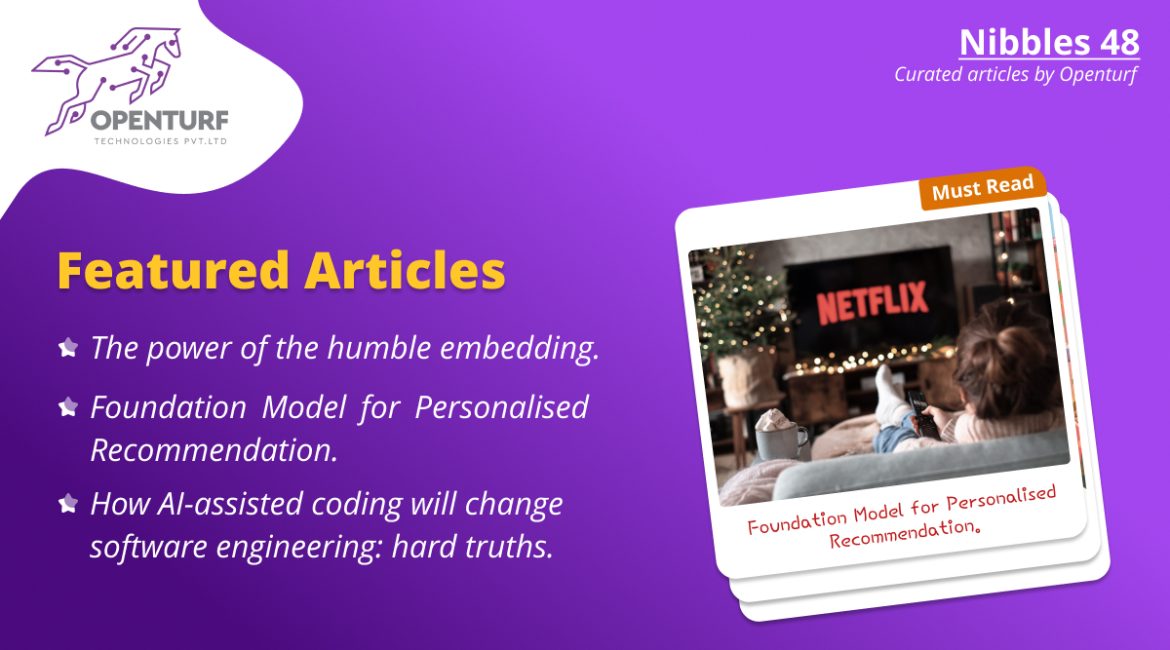This Pragmatic Engineer Newsletter article, featuring insights from Addy Osmani, explores the evolving impact of AI-assisted coding on software engineering. It highlights the transformative potential of AI tools while addressing the nuanced realities behind their usage.
Key Points:
- AI Adoption and Tooling Trends:
Since the release of ChatGPT in 2022, AI tools have become mainstream, with 75% of developers using them. However, we’re still early in the innovation cycle, and 2025 is expected to bring more complex AI agents. - Divergent Usage Patterns:
- Bootstrappers: Use AI to go from design to working prototypes quickly, making AI ideal for rapid validation.
- Iterators: Use AI for daily development, including refactoring, test generation, and improving efficiency.
- Bootstrappers: Use AI to go from design to working prototypes quickly, making AI ideal for rapid validation.
- The 70% Problem:
AI accelerates the first 70% of development but struggles with the final 30%, where expertise is required to ensure maintainability, scalability, and quality. This creates a paradox where experienced engineers benefit the most from AI, while juniors may unknowingly produce fragile, hard-to-maintain systems. - Knowledge Paradox and Pitfalls:
- Senior developers refine AI-generated code by applying expertise in modularization, error handling, and architectural decisions.
- Juniors, lacking this intuition, often accept AI suggestions blindly, resulting in “house of cards” code that collapses under real-world pressure.
- Senior developers refine AI-generated code by applying expertise in modularization, error handling, and architectural decisions.
- Practical Patterns for AI Usage:
- AI First Draft: Use AI for initial code but refactor and validate rigorously.
- Constant Conversation: Start fresh AI prompts for each task, maintaining tight review loops.
- Trust but Verify: Manually review AI-generated critical code paths, test rigorously, and maintain high standards.
- AI First Draft: Use AI for initial code but refactor and validate rigorously.
- Rise of Agentic Software Engineering:
AI is evolving beyond code generators into collaborative agents capable of taking initiative. Future tools will seamlessly integrate visual, verbal, and environmental inputs, moving towards an “English-first” development paradigm where natural language instructions play a primary role. - Return of Software as a Craft:
Rapid AI prototyping may lead to a resurgence in emphasis on polish, error handling, and user experience, with developers focusing on delivering well-crafted, reliable software. - AI Tools’ Limitations Beyond Coding:
While AI excels in generating code, software engineering involves much more: planning, reviewing, verifying, shipping, maintaining, and monitoring. AI currently assists only with the “build” stage, but experienced engineers are still needed for everything else. - AI Agents: Promise and Unknowns for 2025:
AI agents like Devin, though in their infancy, will likely proliferate in 2025. These agents trade latency for accuracy, but their true productivity impact remains to be seen. - Increased Demand for Experienced Engineers:
As AI tools produce more code, complexity increases, requiring experienced engineers to manage, refine, and maintain systems. This suggests that demand for senior developers may actually rise, rather than decline, in the AI-driven future.
Conclusion:
AI tools enhance software development by accelerating known patterns, enabling rapid prototyping, and automating routine tasks. However, their limitations necessitate human expertise for building robust, maintainable systems. The future lies in balancing AI assistance with engineering rigor, ensuring that AI complements rather than replaces human judgment.
👉 Read the full article here
Malcolm Gladwell says people who succeed against the odds usually practice these 5 daily habits
This article highlights five daily habits that Malcolm Gladwell identifies as common among people who succeed against the odds: (1) deliberate practice to build mastery, (2) celebrating small wins to maintain motivation, (3) turning adversity into creative solutions, (4) staying curious and open to new perspectives, and (5) focusing on meaningful goals beyond just winning. These habits help build resilience and long-term success.
The power of the humble embedding
This Stack Overflow article explores the importance of embeddings in AI models, featuring insights from Edo Liberty, Founder and CEO of Pinecone. It highlights how embeddings improve semantic search, enhance vector database efficiency, and support Retrieval-Augmented Generation (RAG). The conversation also touches on fine-tuning models and optimizing AI workflows.
Foundation Model for Personalized Recommendation
This Netflix Tech Blog article discusses how Netflix is transitioning from maintaining numerous small, specialised recommendation models to a unified foundation model. Inspired by advances in large language models (LLMs), this approach centralizes user interaction data and distributes learnings to other models. By leveraging large-scale data and optimizing tokenization of user interactions, Netflix aims to improve recommendation accuracy, scale efficiently, and reduce maintenance costs.
Fun Stuff
👉Our usual fun stuff



